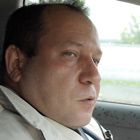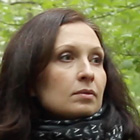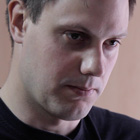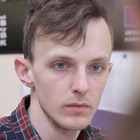Committee against torture
Helps victims of police brutality and defends right to life
At the time when we were creating our organization the term “torture” evoked strange reaction. People asked “Against what? Torture? Are we in the Middle Ages, or what?” We told them “But people are beaten up sometimes in police stations.” And they said “Well, they may beat someone up, but they don’t torture!” The term “torture” caused raised eyebrows, it required deciphering. No one ever questioned the fact that the police could beat someone up, and the attitude towards such cases was unproblematic “Oh, someone was given a dusting. They didn’t cripple him, so thank Heaven.”
I participate in the conversation when a person, who came to us, is in urgent need of filing a lawsuit to the European Court of Human Rights (ECtHR). I evaluate the viability of the case, since I am in charge of all ECtHR applications. I do not know why, but for some reason all the women, who had some incidents with their kids, automatically end up at my desk. Sometimes there is simply no one else in the office, or our lawyers cannot identify whether a given case fits our profile.
Our specialization is the second and third articles of the Convention: the violations of the right to life and the violations of the prohibition of torture and inhuman or degrading treatment. For example, those articles can be invoked in the absence of an adequate investigation of death of someone’s son or daughter. This is a violation of the second article in relation to the child, and of the third article in relation to the parents, for they experience suffering, because the state does not ensure adequate investigation of all the circumstances of their child’s death.
To be frank, such conversations do not trouble me that much. But I am only speaking for myself. I have a fairly stable psychology. I do not block any negative information; I simply accept life the way it is.
This conference is an attempt to educate those, whose work is related to our cause, but they are not members of the Committee against Torture. One workshop was intended for doctors. There were traumatologists and psychologists among them, who work in private clinics or state institutions. A traumatologist is the first person, who a torture victim goes to, if he or she is planning to go to court. Psychologists are usually called in when one wants to work with remand detainees. Those doctors work with the same people as we do, but they are in charge of slightly different things.
Together we work for the same cause, but the Committee is constantly searching for new information. We have a fairly large knowledge base because we cooperate with our colleagues abroad. The doctors, on the other hand, have nowhere to get such information from. In state institutions no one even distinguishes torture victims as a separate category. There are no educational programs and no interest in this at all. This is why we are trying to improve those people’s qualification, so that it would be easier for us to work with victims and to provide them with qualified and comprehensive aid.
The second workshop was led by Ilves from the European Committee against Torture. This was a session for the members of Public Monitoring Committees. Our lawyers were present there as well. She spoke about the European Committee’s approach to visiting detention facilities.
I have my tires punctured all the time. This is not always connected to my professional activity, sometimes I would simply park in a wrong place… Yet, by the office, my car was not obstructing the traffic. Although, the wheel might have been punctured by the hotel, where we had our conference; there was a visible cut on one side.
I believe some hooligans are doing this. The police would not involve themselves in such business. The other day, a bunch of hooligans were throwing stones at our office, they wanted to break the windows. They tried eight times before they succeeded, and then they realized that CCTV was on and ran away. Such things often end in ridicule.
Occasionally, law-enforcement agencies invite us for a talk, but this is a part of investigative activities, that is why we react to such invitations calmly. Usually, people from the Department for Countering Extremism are standing in front of our office, under the roof of children’s polyclinic, among baby carriages.
The case of Aleksandr Kabanov – a native of Nizhny Novgorod, who filed a complaint about being beaten up by the police, – was a promising one. We gathered evidence proving that he had been subjected to police violence. We got his mother’s and his colleagues’ testimonies confirming that Kabanov was healthy and sound at the moment, when police officers detained him at work to deliver him to the station. Plus, his medical records showed that afterwards he suffered some injuries. Kabanov sent a complaint to the Investigative Committee indicating that he had been beaten up.
The police officers decided to “make an agreement” with him. Despite all our efforts to convince Kabanov that such “agreements” were unlawful, he accepted a substantial sum of money from the police and revoked his complaint. After such a turn we could no longer represent his interests. This act, one could say, gave a free hand to dishonest police officers.
Unscrupulousness in the question of unacceptability of torture, as well as the myth of impunity for official misconduct that exist in society are those pillars that hold the problem itself, the social disease called “torture”.



